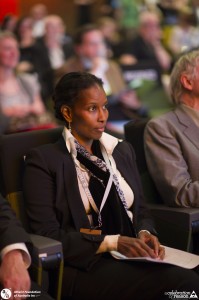Call me biased — I happily accept all charges of subjectivity in this matter. I am going to unabashedly revel in how amazing this is and nothing can stop me. This was so desperately needed and it finally exists.
I’m talking about Ex-Muslims of North America.
When I first became an apostate in 2006, the world of the ex-Muslim was far more narrow than it is today. The only apostates I’d heard of were international figures who had to live under armed guard, like Ayaan Hirsi Ali; anonymous folks mostly found online, like the now-defunct Towelians; or those who somewhat qualify as both, like Ibn Warraq. The idea of run-of-the-mill folks simply being apostates of Islam in their hearts, let alone out under their true names, seemed impossible. The overall message for ex-Muslims seemed unequivocal: your family will disown and shun you at best, Jihadis will put a mark on you, and the world aside from the extreme right-wing will reject you.
I didn’t want to be an out apostate if it meant being hurt or killed, or losing my family, or automatically joining up with Daniel Pipes.
I did it anyway.
Though I knew it would end up doing so, I didn’t do it to cause trouble. Though I knew the act would be perceived that way, I didn’t do so to rebel, either. I didn’t even do it to make a point — at least not primarily.
I did it because I wanted to be loved and accepted for who I was. All I wanted was to be myself, consistently, everywhere, with everyone. It was how I behaved when I was a devout Muslim and it was how I wanted to continue to behave as a former Muslim.
My actions did end up making a point. As far as I know, there is no fatwa against me declaring that I should be killed. My family, though in deep disagreement with me, still loves me. The only association I’ve ever had with Daniel Pipes was attending a free event of his where I asked him a pointed question about his racism at which he rather waffled and, of course, contradicted himself. My existence alone, as I am, makes more than a few points.
Obviously, such is not the case for all ex-Muslims, including but not limited to Ayaan Hirsi Ali. Take Marwa Berro, the brilliant young woman behind Between a Veil & a Dark Place, for example. Plenty of other ex-Muslims hide their identities and/or are only out on a limited basis to keep themselves safe from harm. On the flip side, I’ve heard of ex-Muslims whose families don’t care too much about the fact that they’ve left Islam, something I never thought possible. That’s the point: what an ex-Muslim experiences as a result of their apostasy depends a great deal on that person’s family, background, country of origin, nationality, and so on. There are a lot of different experiences out there, and the variety of voices and approaches showcased on Ex-Muslim Blogs is a testament to that. It’s essential that we hear from more than just a few of them.
I am so pleased and honored to be living in a time when ex-Muslims have reached critical mass and are starting to come out more and more as well as to organize. Between the Ex-Muslims Councils that have formed in Europe, the active “ex-Moose” sub-Reddit, Muslimish, and EXMNA, I feel incredibly hopeful. The multiple facets and varieties of the ex-Muslim experience are worth discussing and knowing. Ex-Muslims of North America is one more step in deconstructing the myth of the monolith about those who hail from Muslim backgrounds. More importantly, groups like EXMNA make the world a better and safer place for those who leave Islam, one vocal and/or out apostate at a time.



